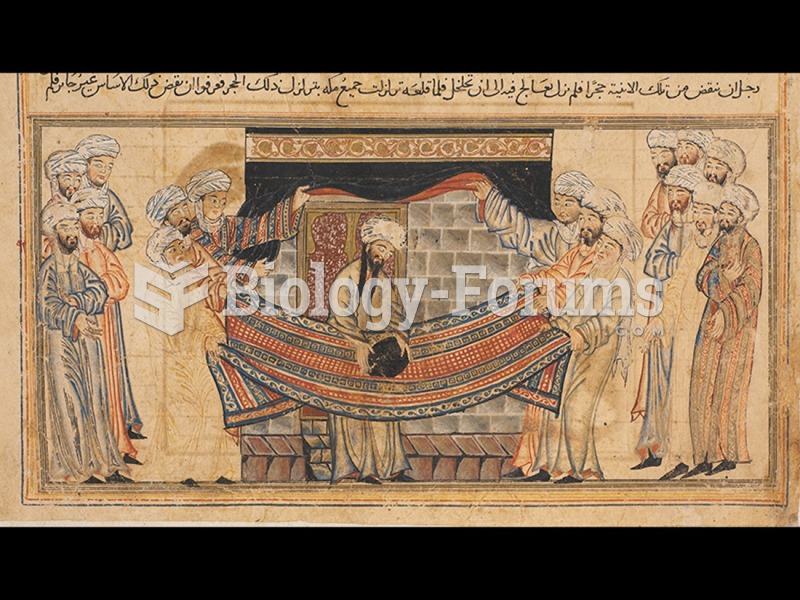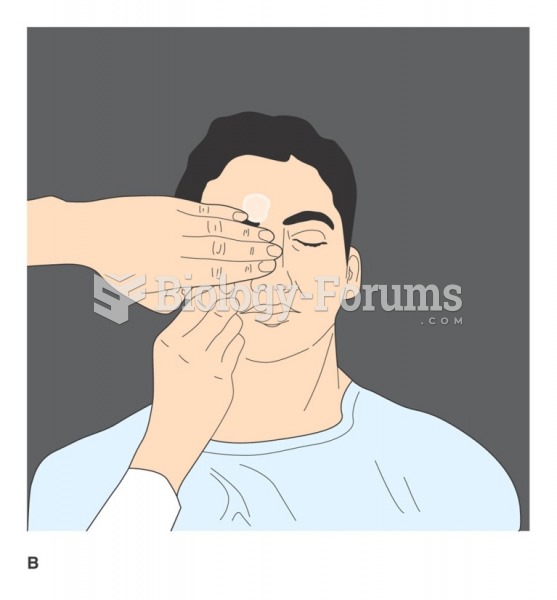This topic contains a solution. Click here to go to the answer
|
|
|
Did you know?
Automated pill dispensing systems have alarms to alert patients when the correct dosing time has arrived. Most systems work with many varieties of medications, so patients who are taking a variety of drugs can still be in control of their dose regimen.
Did you know?
The horizontal fraction bar was introduced by the Arabs.
Did you know?
It is difficult to obtain enough calcium without consuming milk or other dairy foods.
Did you know?
Your heart beats over 36 million times a year.
Did you know?
The tallest man ever known was Robert Wadlow, an American, who reached the height of 8 feet 11 inches. He died at age 26 years from an infection caused by the immense weight of his body (491 pounds) and the stress on his leg bones and muscles.







